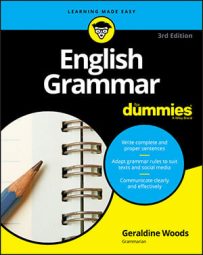Octavia screamed more chillingly.Do you understand the meaning of this comparison? Take a look at these possible scenarios:
Octavia screamed more chillingly. "Uh oh," thought Max, "yesterday I thought she would burst my eardrum. If she screams more chillingly today, I'd better get my earplugs out before it's time for tomorrow's lungfest."or
Octavia screamed more chillingly. Max, rushing to aid Carmen, whose scream of terror had turned his blood to ice, stopped dead. "Octavia sounds even worse," he thought. "I'd better go to her first."or
Octavia screamed more chillingly. "Please," said the director, "I know that you have just completed take 99 of this extremely taxing verbal exercise, but if you are going to star in my horror movie, you'll have to put a little more into it. Try again!"The comparison in the examples is incomplete. Octavia screamed more chillingly than . . . than what? Until you finish the sentence, your readers are left with as many possibilities as they can imagine. Bottom line: Don't stop explaining your comparison until you get your point across. Look at the following example:
WRONG: Octavia screamed more chillingly.Here's another comparison with a fatal error. Can you spot the problem?RIGHT: Octavia screamed more chillingly than I did the day Lulu drove a truck over my toe.
ALSO RIGHT: Octavia screamed more chillingly than she ever had before, and Max resolved to come to her aid after finishing his lunch.
RIGHT AGAIN: Octavia screamed more chillingly than she had in the previous takes, but the director still decided to hire a different actress.
Lulu loved sky-diving more than Lola.Need another hint? Read on:
Lulu loved sky-diving more than Lola. Lola sobbed uncontrollably as she realized that Lulu, whom she had always considered her best friend, was on the way to the airport instead of on the way to Lola's birthday party. What a disappointment!or
Lulu loved sky-diving more than Lola. Lola was fine for the first 409 jumps, but then her enthusiasm began to flag. Lulu, on the other hand, was climbing into the airplane eagerly, as if it were her first jump of the day.See the problem? Lulu loved sky-diving more than Lola is incomplete. Your reader can understand the comparison in two different ways, as the two stories illustrate. The rule here is simple: Don't omit words that are necessary to the meaning of the comparison.
WRONG: Lulu loved sky-diving more than Lola.One more time. What's the problem now?RIGHT: Lulu loved sky-diving more than she loved Lola.
ALSO RIGHT: Lulu loved sky-diving more than Lola did.
"My life is the best," explained Ralph.This one is so easy that you don't need stories. Best how? In money, fame, love, health, lack of body odor, winning lottery tickets, number of Twitter followers? Ralph's friends may understand his statement, but no one else will.
In making a comparison, be clear and complete.

